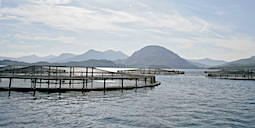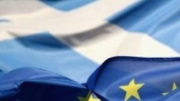Scottish salmon exports reached a record £346 million in the first half of 2017 — a 70% increase on the same period last year, according to new figures from HMRC.
The news is a massive boost for the Scots salmon farming industry which has been severely affected by sea lice in recent years.
Scottish Salmon Producers’ Organisation (SSPO) chief executive Scott Landsburgh said the Far East is becoming a major export market for Scots salmon behind the United States.
“The development of the Far East marketplace is a huge programme of work and the fact that annual Chinese exports are now worth around £90 million from a standing start six or seven years ago indicates that this has been worth the effort,” said Landsburgh.
Scotland Food & Drink chief executive James Withers said: “This is a phenomenal set of salmon export results and demonstrates the growing global demand for world class Scottish products.
“The growth in the Far East reflects the talent of salmon producers here and also the hard work of the trade specialists now embedded by the Scotland Food & Drink Partnership in priority export markets.
“We’re also seeing exceptional growth in other core markets such as North America where salmon sales have nearly doubled versus the first half of 2016 to £133 million.
“As consumers overseas look for high quality products with a strong story behind them, few countries are as well placed to succeed in the coming years as Scotland.
“Our sales of Scottish food globally have risen 110% to £1.5 billion over the last 10 years but we have greater potential still.
“It is great to see our food exports following in the footsteps our number one export, Scotch whisky, which is also showing continued growth this year.”
Rural Economy Secretary Fergus Ewing said: “Particularly pleasing is the success of our work to unlock more markets in the Far East, which have been key industry target areas.
“However, this success simply underlines the importance of ensuring Scotland’s food and drink exports are protected from the potentially damaging consequences of Brexit.”




